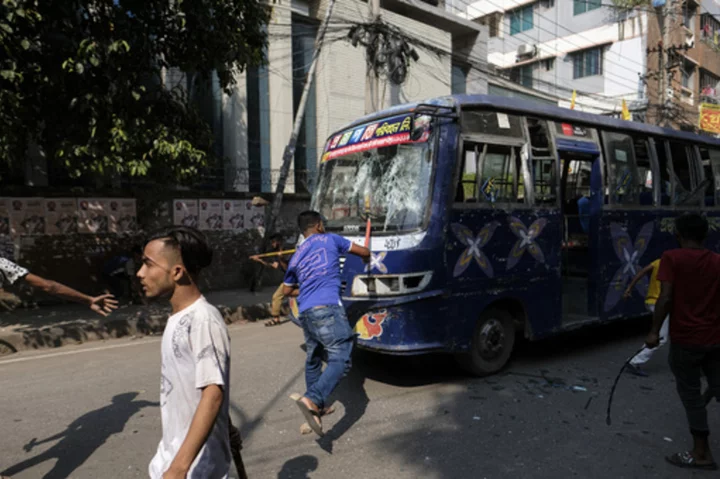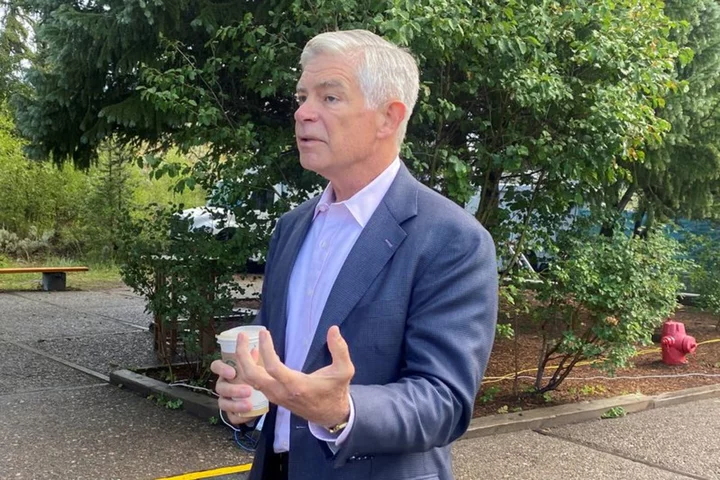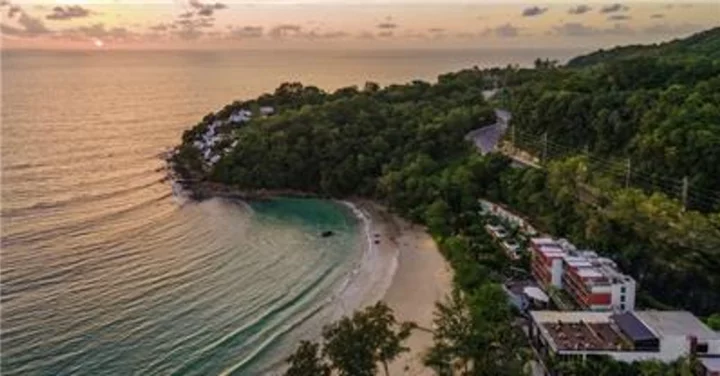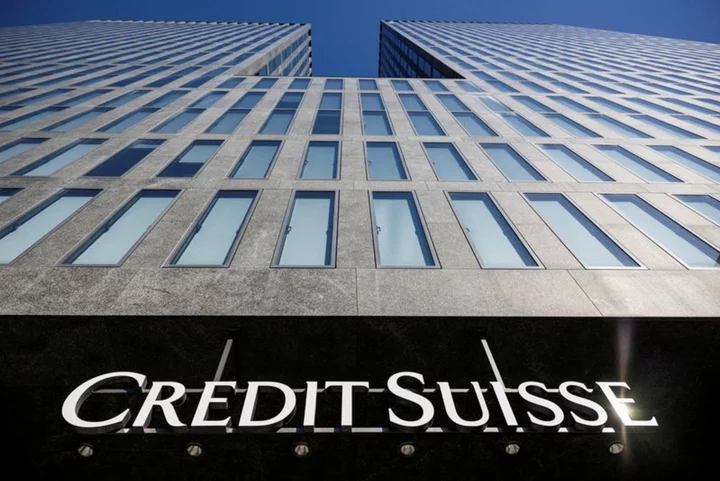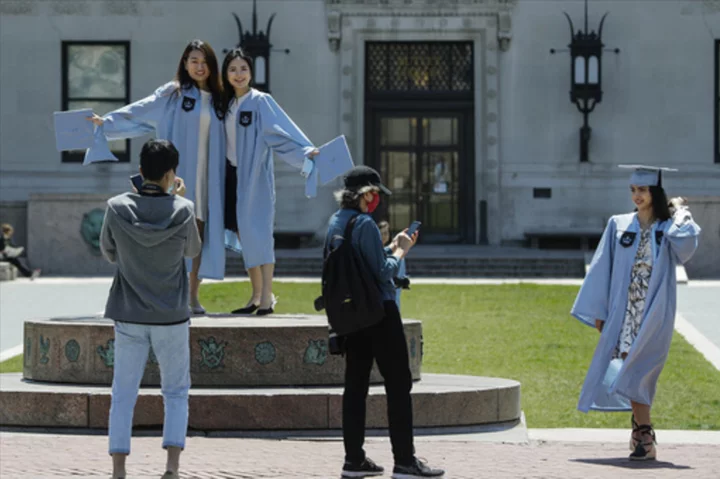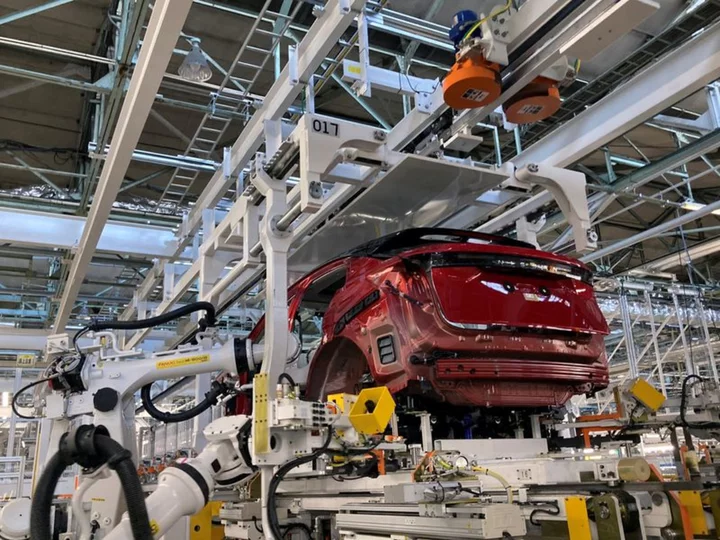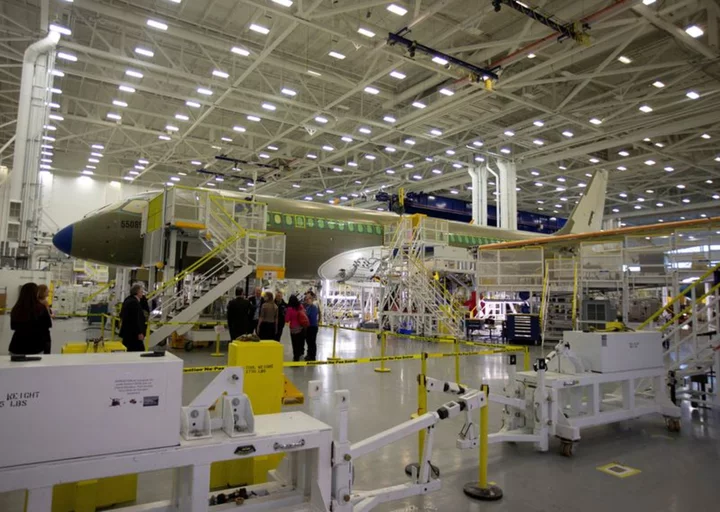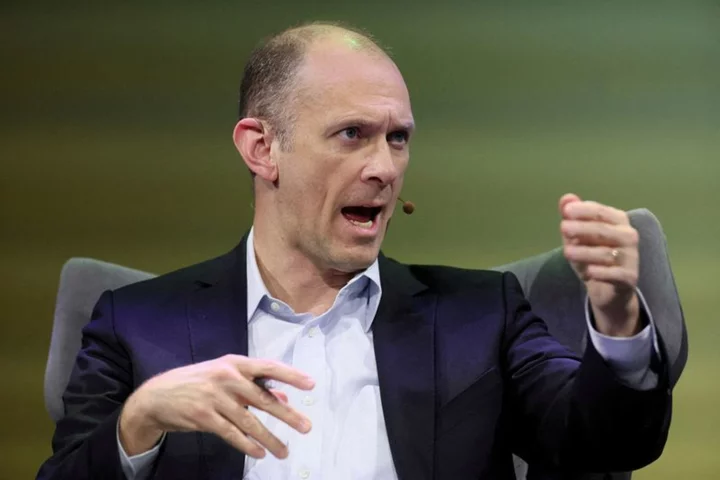DHAKA, Bangladesh (AP) — Thousands of garment factory workers took to the streets of Bangladesh’s capital, Dhaka, and the industrial district of Gazipur on Tuesday to demand better wages.
Bangladesh is the second largest garment-producing country in the world after China with its nearly 3,500 factories where some 4 million workers are employed — most are women — according to the Bangladesh Garment Manufacturers and Exporters Association, or BGMEA. The workers get 8,300 takas, or $75, as monthly minimum wage and they often need to work overtime to make ends meet, labor unions and workers say.
Protests erupted over the weekend after BGMEA offered to increase the monthly minimum wage by 25% to reach $90, instead of the $208 demanded by the workers.
While Bangladesh has been maintaining stable annual economic growth for years, rising inflation has become a major challenge.
Gazipur district, which houses thousands of factories, saw thousands of protesters on the streets with some throwing stones at shops.
In Dhaka’s Mirpur area, where an Associated Press team was at the scene, hundreds of protesters chanted demanding better wages. Some were seen vandalizing vehicles. Others chanted slogans as security personnel patrolled the area.
Garment worker Shahida Akhter said while protesting in Mirpur that she struggles to put food on the table.
“(If you) reduce the price of (essential) goods, our wages won’t need to be hiked,” she said, complaining about the constant rise in prices. "Do you know what is the cost of having a family? If there are babies, we need to spend more,” Akhter added.
Raihan Mia, a fire department official in Gazipur district, told The Associated Press by phone that the workers set fire to an electric goods showroom and vandalized a medical clinic and some other shops.
BGMEA called on the protesters not to use violence or damage their factories.
Local media reports said two workers died in clashes with police in Gazipur on Monday while some blocked roads and set fire and vandalized several factories.
Bangladesh earns annually about $55 billion from exports of garment products, mainly to the United States and Europe.
The protests came amid rising tensions over the coming general elections between the ruling Awami League party — led by Prime Minister Sheikh Hasina — and the main opposition group — Bangladesh Nationalist Party — led by her rival and former Prime Minister Khaleda Zia.

